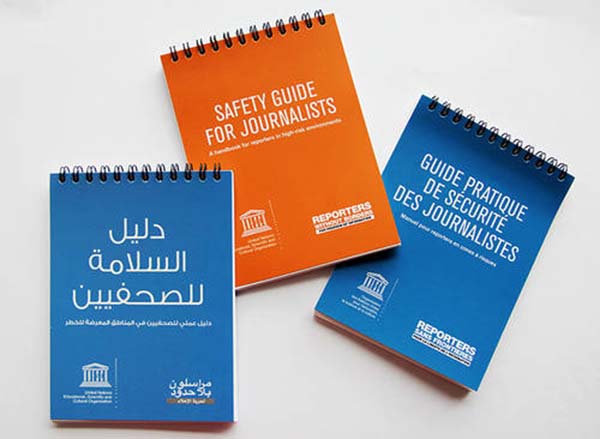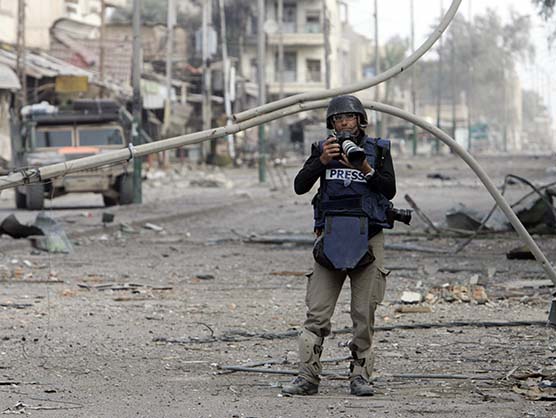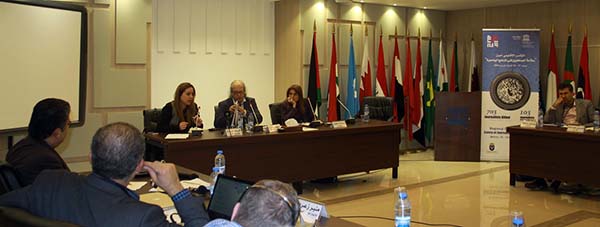A course on safety for journalists is a must and Arab universities should incorporate it in their media programs, experts said at a two-day UNESCO conference in Beirut.

UNESCO’s safety guide for journalists
“News organizations should train journalists and insist on safety measures and the use of proper equipment,” said Yazbeck Wehbe, a veteran of LBCI TV News who also teaches journalism at several Lebanese universities.
Academics from Lebanon, Syria, Palestine, Jordan, Egypt, Iraq, Tunisia, Morocco and Oman went over a draft of a semester-long course to be taught as one required unit, as an elective, or, from which they can select components to incorporate in other relevant media courses.

Magda Abu-Fadil (3rd from right) at Beirut conference on safety for journalists course in college curricula
Speakers included a security expert as well as four noted Lebanese journalists – two who work locally and two whose international track record in covering conflict zones is legend.
The course syllabus includes an overview and raison d’etre for safety as well as content on planning and personal safety, risk assessment, travel security, health and health care in hostile environments, demonstrations (and riots), natural disasters, gender safety, digital security, ethics, international humanitarian law, and safe investigative reporting.
Patrick Baz (a/k/a “Boom Boom” Baz), a world-renowned photojournalist whose career is linked to Agence France-Presse (AFP), offered valuable insights on how he covered some of the hottest spots in the Arab world and what lingering impact it’s had on him.

International photojournalist Patrick Baz in Fallujah, Iraq
The February 2016 event was a follow-up to last year’s launch in Jordan of the initiative in collaboration with the International Federation of Journalists (IFJ). It dovetailed with the goals of the “U.N. Plan of Action on the Safety of Journalists and the Issue of Impunity.”
“Being a correspondent is going to places and sometimes bearing witness to war crimes,” said Samia Nakhoul, a Reuters veteran and Middle East editor who was seriously injured and almost died when U.S. tanks lobbed shells into the Palestine Hotel in Baghdad where foreign media were based during the 2003 invasion of Iraq.

Al Jadeed TV Vice Chair Karma Khayat, IFJ President Jim Boumelha and Reuters Middle East Editor Samia Nakhoul
The Beirut gathering came 10 days after UNESCO held a conference on “News Organizations Standing Up for the Safety of Media Professionals” at its Paris headquarters that drew some 300 international media leaders focused on safeguarding their staffers and ending impunity for attacks against them.
The course will undergo revision before being made available to all Arab universities and the public at large.

IFJ publications on journalists’ casualties and safety
Media Unlimited director Magda Abu-Fadil, one of the experts involved in creating this course, moderated sessions at the Beirut conference.







